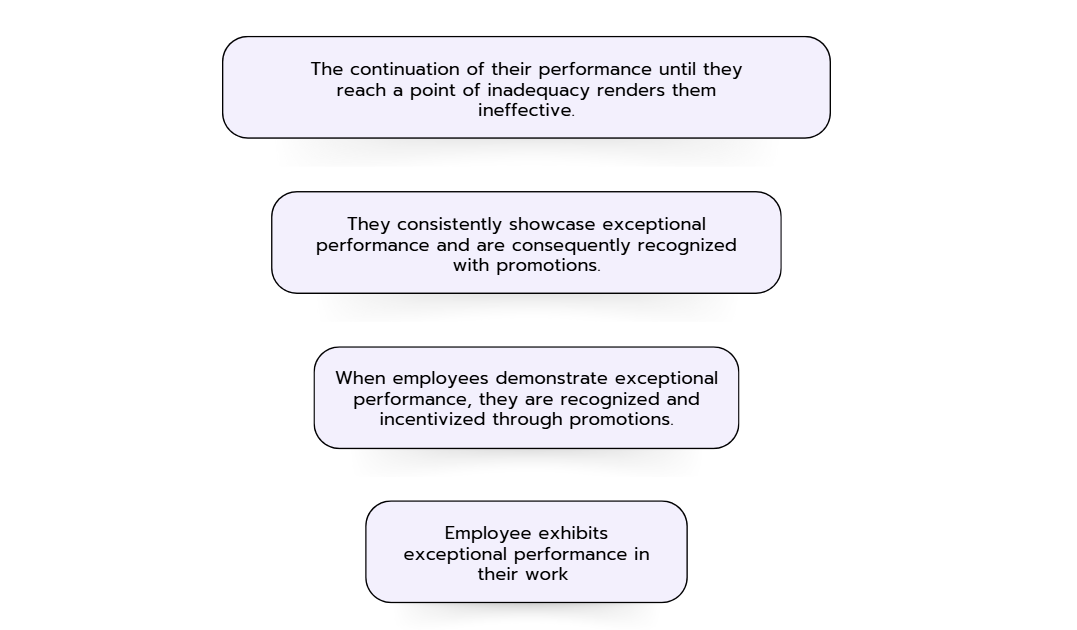In today's business world, competition is tougher than ever. Companies are looking for ways to differentiate themselves from the competition and succeed. In this quest for success, however, there is a phenomenon that can affect the performance and effectiveness of organizations - the Peter Principle. This principle, formulated by Laurence J. Peter, states that employees in hierarchies tend to rise to their level of incompetence. This article explores the Peter Principle in more detail and explains how it can impact the management consulting industry.
The Outline of the Peter Principle
The Peter Principle was first introduced in 1969 by Laurence J. Peter and Raymond Hull in their book, The Peter Principle. It describes a phenomenon in which employees are promoted in a hierarchy based on their past performance until they reach a position in which they are no longer successful and are often even overworked. In other words, people are rewarded based on their competence, but their promotions occur beyond the limits of their actual abilities. The result is an organization in which many employees are working at a level for which they are unsuited.
Peter Principle in Management Consulting
The management consulting industry is known for its challenging projects and the need to solve complex problems. To be successful, you need a high level of expertise, analytical skills, and strategic thinking. The Peter Principle can have an impact here as well.
Consultants are often promoted based on their past successes. An employee who has done an excellent job in one area may be promoted to team leader or even management. But this promotion does not automatically mean that he or she has the necessary skills and knowledge for the new position. Being confronted with new tasks that are outside the previous area of expertise, such as managing a team, acquiring new customers or business development, can mean unexpected challenges and excessive demands. As a result, the performance of the entire team can be affected if the leader does not have sufficient knowledge or skills.
It is important to note that the Peter Principle does not mean that all promoted employees are incompetent. Rather, it means that their previous skills and competencies are not necessarily transferable to the new tasks. A first-class consultant does not necessarily have to be successful at management level. The skills that made someone successful in their original field are not necessarily the same skills that will make them successful in a management position.

Avoiding the Pitfalls of the Peter Principle
To minimize the negative effects of the Peter Principle in management consulting, there are some proven strategies that companies can use.
- Promotions should not be based solely on past performance but should also take into account skills and suitability for the new tasks. It is important that employees* be evaluated for their leadership skills and potential before they are promoted to a position of greater responsibility.
- Companies should implement leadership development programs to ensure that employees who advance to higher positions acquire the necessary skills and knowledge. Training in team management, communication, and strategic thinking can help bridge the gap between previous skills and the requirements of the new position.
To avoid overwhelming yourself and creating a stressful situation, it's especially important to address a few things ahead of time in a promotion process. Here, you should ask yourself to what extent the new tasks seem familiar to you and also solvable, or which skills you should still acquire in the process or even in advance of the promotion. Particularly in the case of internal promotions, job descriptions are often not very specific. A conversation with colleagues who are already on the next promotion level can bring clarity. Looking for programs or further training can also be a useful preparation for a relaxed transition to the new position.
Significance for Companies and Employees
The Peter Principle, which states that people tend to advance to their level of incompetence, also has implications for the management consulting industry. Promotions based on past performance alone can lead to employees being placed in positions for which they are unsuited. All stakeholders should therefore carefully consider whether the necessary skills and aptitudes for new roles are already in place.
Implementing leadership development programs and addressing leadership skills can minimize the negative effects of the Peter Principle. Only in this way can companies ensure that their employees are able to successfully complete their tasks. Self-confident and relaxed employees not only contribute to the long-term success of the company, but also to a good working atmosphere.

